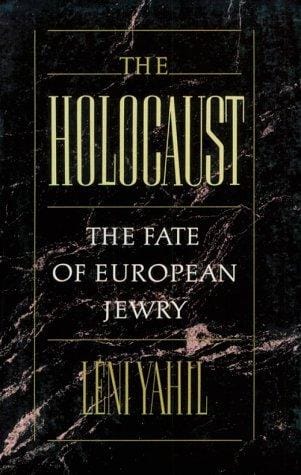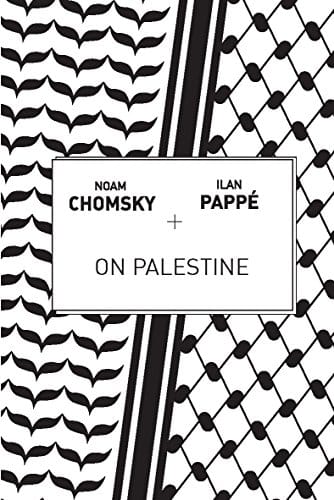The Holocaust: History, Causes, Impact & Lessons
Explore the history, causes, and lasting lessons of the Holocaust, the Nazi regime’s systematic genocide of six million Jews and millions of others.

Introduction
The Holocaust was the systematic, state-sponsored persecution and murder of six million Jews and millions of Romani people, Poles, Soviet prisoners of war, people with disabilities, LGBTQ individuals, and other groups by Nazi Germany and its collaborators between 1933 and 1945. Understanding this genocide is crucial not only for honoring the victims but also for recognizing the warning signs of hate and preventing future atrocities.
Roots of the Holocaust
The Rise of Nazi Ideology
After Germany’s defeat in World War I, economic hardship, political instability, and social unrest created fertile ground for extremist movements. Adolf Hitler and the National Socialist German Workers’ Party (Nazi Party) capitalized on widespread discontent by promoting a platform of ultranationalism, racial purity, and antisemitism. Hitler’s 1925 manifesto, Mein Kampf, outlined his belief in an Aryan master race and his intent to remove Jews from German life.
Legal Foundations of Persecution
Once in power in 1933, the Nazis rapidly transformed hateful rhetoric into law. The 1935 Nuremberg Laws stripped Jews of German citizenship and prohibited marriage or sexual relations between Jews and “Aryans.” These laws institutionalized racial discrimination, paving the way for more aggressive measures. Propaganda, spearheaded by Joseph Goebbels, normalized antisemitic stereotypes and dehumanized Jewish citizens in the public mind.
Implementation of Genocide
Ghettos and Forced Labor
Following Germany’s invasion of Poland in 1939, Jews were forced into crowded urban areas called ghettos. Warsaw, Łódź, and Kraków ghettos became centers of starvation, disease, and brutality. Residents endured forced labor, confiscation of property, and constant terror from German authorities.
Concentration and Extermination Camps
The Nazi regime created an extensive network of camps across occupied Europe. While early facilities like Dachau primarily targeted political opponents, later camps evolved into sites of mass murder. In 1942, the Wannsee Conference formalized the “Final Solution,” a plan to annihilate Europe’s Jewish population. Extermination centers such as Auschwitz-Birkenau, Treblinka, Sobibor, and Belzec employed gas chambers, forced labor, starvation, and medical experimentation to kill with industrial efficiency.
Mobile Killing Units
In Eastern Europe, Einsatzgruppen—mobile paramilitary units—followed advancing German troops, rounding up and shooting Jewish communities. Mass graves in Babi Yar, Ukraine, and Ponary, Lithuania, testify to their brutality. By the end of 1941, these units had murdered more than a million people.
Global Awareness and Response
News of Nazi atrocities gradually reached the Allied powers, but disbelief, bureaucratic inertia, and geopolitical priorities limited action. The 1943 Bermuda Conference, convened by Britain and the United States to address the refugee crisis, ended without concrete rescue plans. Meanwhile, resistance movements within occupied territories—such as the 1943 Warsaw Ghetto Uprising—demonstrated extraordinary courage despite overwhelming odds.
Liberation and Aftermath
As Allied forces advanced in 1944–45, they liberated camps like Majdanek, Auschwitz, and Bergen-Belsen, uncovering the full horror of Nazi crimes. Survivors faced immense challenges: physical devastation, psychological trauma, and the destruction of entire communities. Many found temporary refuge in Displaced Persons camps before emigrating to new homelands, including the United States and the newly established State of Israel in 1948.
The Nuremberg Trials (1945–46) marked the first international tribunal to prosecute crimes against humanity, war crimes, and genocide. High-ranking Nazi officials were held accountable, setting legal precedents that inform modern human-rights law.
Remembering the Holocaust
Commemoration is essential to honoring victims and educating future generations. Institutions like Yad Vashem in Jerusalem, the United States Holocaust Memorial Museum in Washington, D.C., and the Auschwitz-Birkenau Memorial and Museum in Poland preserve artifacts, testimonies, and historical records. International Holocaust Remembrance Day, observed each year on January 27, marks the liberation of Auschwitz and underscores a global commitment to remembrance.
Eyewitness accounts from survivors such as Elie Wiesel, Primo Levi, and Anne Frank play a pivotal role in humanizing statistics and fostering empathy. As the survivor population diminishes, digital archives and oral-history projects help ensure their stories continue to educate.
Lessons for Today
The Dangers of Antisemitism and Hate
The Holocaust demonstrates how unchecked prejudice can escalate into genocide. Contemporary rises in antisemitic rhetoric, hate crimes, and denialism highlight the need for vigilance. Challenging discriminatory myths, supporting inclusive education, and promoting intercultural dialogue remain vital defenses against hatred.
The Importance of Democratic Institutions
Nazi Germany manipulated legal systems and eroded civil liberties to consolidate power. Strong democratic institutions—free press, independent judiciary, and active civil society—are crucial safeguards against authoritarianism. Citizens play an essential role by staying informed, voting, and holding leaders accountable.
Human Rights and Genocide Prevention
Legal frameworks like the 1948 United Nations Genocide Convention, the Universal Declaration of Human Rights, and subsequent international courts draw direct inspiration from Holocaust revelations. Monitoring early warning signs—hate speech, propaganda, systematic discrimination—helps prevent future genocides in regions at risk today.
Conclusion
The Holocaust stands as one of history’s darkest chapters, illustrating the catastrophic consequences of hatred, indifference, and totalitarianism. Remembering this genocide honors the victims, supports survivors, and reminds humanity of its responsibility to protect the vulnerable. By studying the Holocaust’s origins and outcomes, we reinforce universal values of dignity, equality, and justice—principles that must guide us in confronting prejudice wherever it arises.



